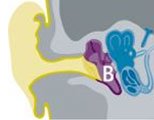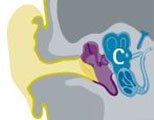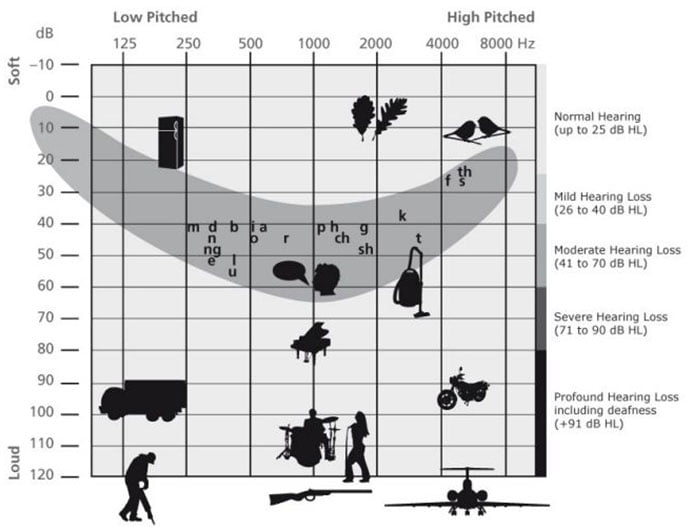CAUSES OF HEARING LOSS
Facts and Figures
About 800 million people around the world are affected by hearing loss. It is estimated, that this number will rise to 1.1 billion by 2015 – about 16% of the world’s population.
Several different studies show that approx. 65% of people with hearing loss experience a mild hearing loss, 30% a moderate and 5% a severe or profound hearing loss. Only about a third of all people with hearing loss are of retirement age.
The majority is of school or working age.Studies also showed that only one in five people who would benefit from a hearing aid actually uses one. On average, people with hearing loss wait almost 10 years before they do something about it.
At the same time, more and more young people experience hearing loss, which is mainly due to excessive noise levels and listening to music much too loudly. Hearing loss caused by MP3 players.
Causes of Hearing Loss
Hearing loss can be the result of damage to any one of these sections:

Causes in the Outer Ear
Typical problems with the outer ear (A) include ear wax plugs and infections of the auditory canal. Usually, addressing these problems is very easy. But it is important to act quickly in order to avoid hearing damage.

Causes in the Middle Ear
Inflammation, fluid behind the eardrum, perforations of the eardrum and otosclerosis (a stiffening of the bones in the middle ear) are the most common problems to interfere with middle ear (B) function.
Most outer and middle ear problems can be addressed effectively with medication or surgery. If this is not possible, permanent hearing loss can be compensated with a hearing aid in most cases.

Causes in the Inner Ear
The majority of hearing issues concern the inner ear (C). The most common cause is the natural aging process.But loud noise, taking some types of medication, or skull fractures can also have a negative influence on a person’s hearing ability.
These influences damage the fine hair cells and affect the transmission of signals to the auditory nerves. Usually, inner ear hearing loss cannot be addressed medically. However, this type of hearing loss can be corrected with a hearing aid in most cases.
Hearing loss caused by an outer or middle ear defect is called conductive hearing loss. Damage to the inner ear, is called sensorineural hearing loss. If both types occur together, the condition is called mixed hearing loss.
What are the Different Degrees of Hearing Loss?
Between “hearing well” and “hearing nothing” lies a wide range of different degrees of hearing loss. Experts distinguish between mild, moderate, severe and profound hearing loss. Most cases of hearing loss are categorized as mild or moderate

Mild Hearing Loss
Soft noises are not heard. Understanding speech is difficult in a loud environment.
Moderate hearing loss
Soft and moderately loud noises are not heard. Understanding speech becomes very difficult if background noise is present.
Severe hearing loss
Conversations have to be conducted loudly. Group conversations are possible only with a lot of effort.
Profound hearing loss
Some very loud noises are heard. Without a hearing aid, communication is no longer possible even with intense effort.
The sound of speech
Human speech consists of vowels and consonants at different loudness and frequency levels. They are recorded on the audiogram as a so-called “speech banana”. It is an easy way to check whether the entire spectrum of speech is still audible and how a person’s hearing changes with time.
Consequences of Hearing Loss
Hearing Loss Often has Complex Consequences
Many facets of everyday life become increasingly more difficult. Conversations with loved ones, meetings, phone calls and watching TV can be particularly challenging. In many cases, people with hearing loss will withdraw and become socially isolated. Their quality of life diminishes noticeably.

Social Consequences
Physical Consequences

